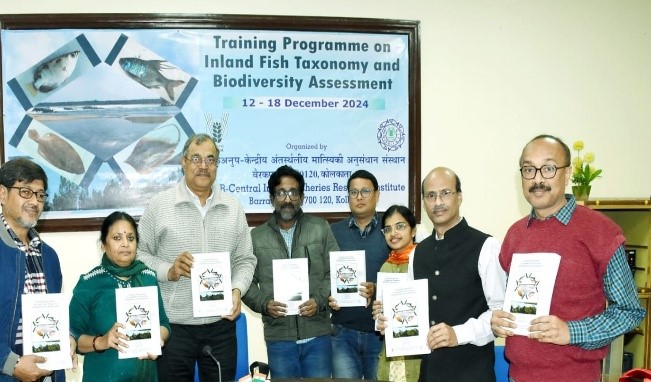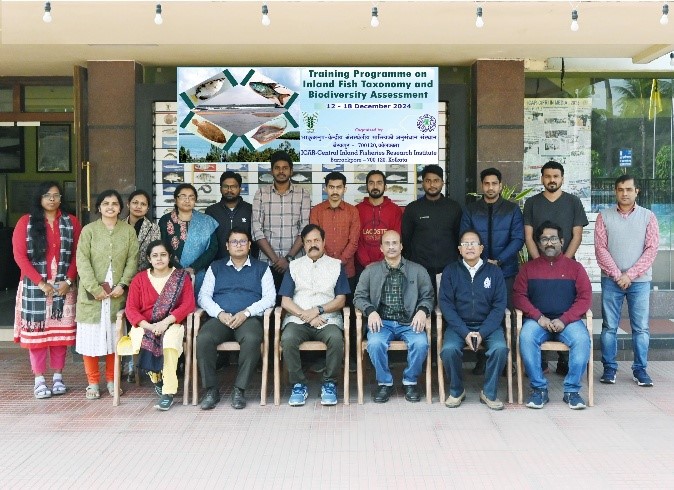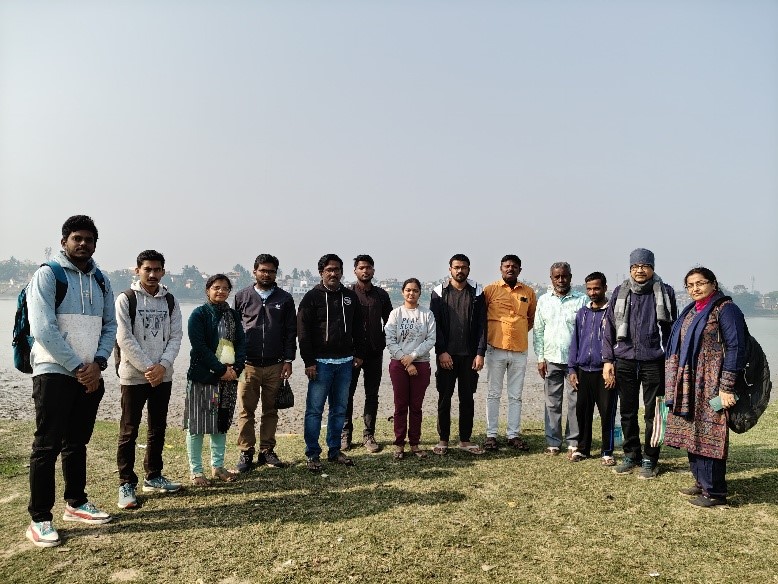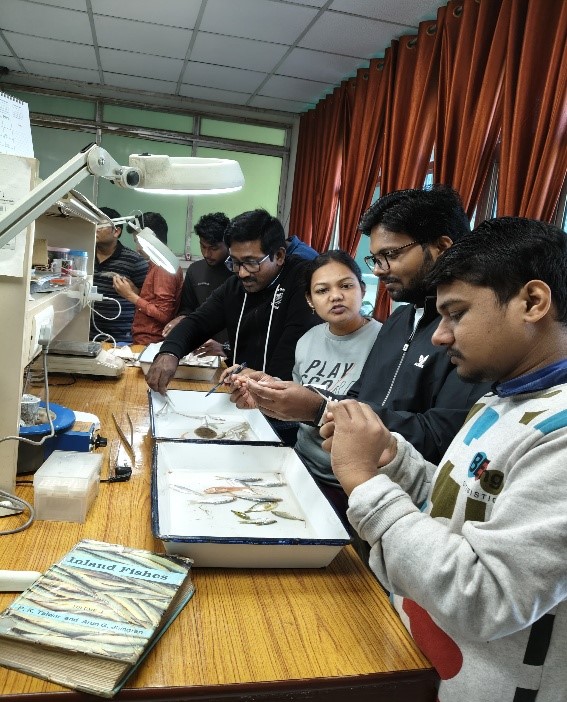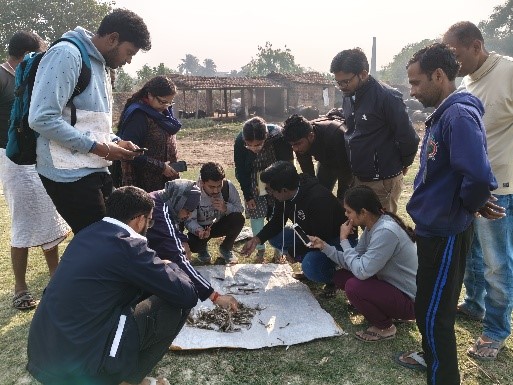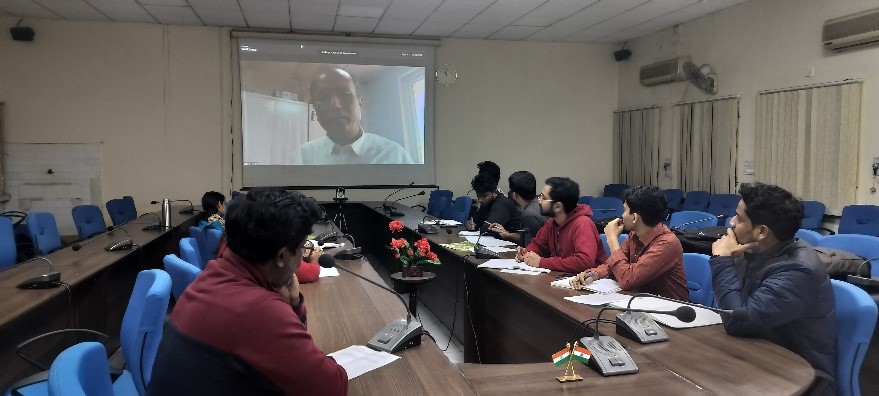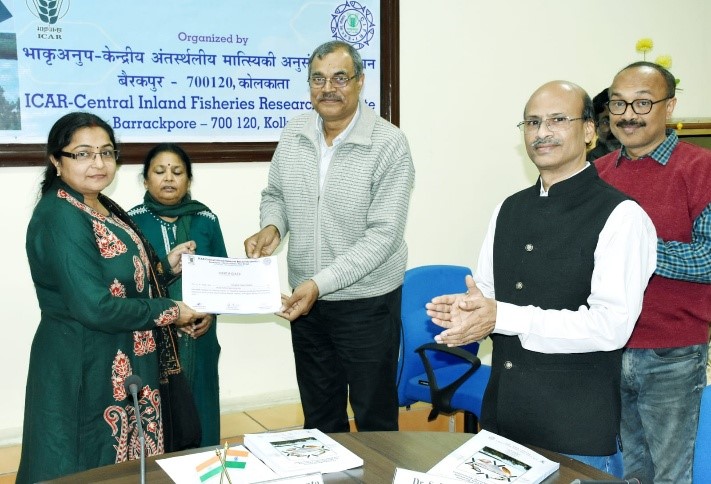Overview
Publications
Recruitment
Intranet
CIFRI Corners'
The inland capture fisheries data has always been impaired by the ‘taxonomic impediment’ arising out of the shortage in taxonomic expertise, taxonomic collections, field guides and other identification tools as well as the difficulty in accessing the existing taxonomic literature. The ICAR–CIFRI organized seven days training on “Inland Fish Taxonomy and Biodiversity Assessment” during 12-18 December 2024 to address this research constraints that hampers the fish biodiversity research in Indian inland waters. Eleven participants attended the training, comprising three M.F.Sc. students and two Ph.D. candidates from the West Bengal University of Fisheries and Animal Sciences, two M.Sc. students from the Rani Lakshmi Bai Central Agricultural University in Jhansi, two technical assistants from ICAR-CIFRI in Barrackpore, and one research scholar each from Netaji Subhash Open University and the NMCG Project.
